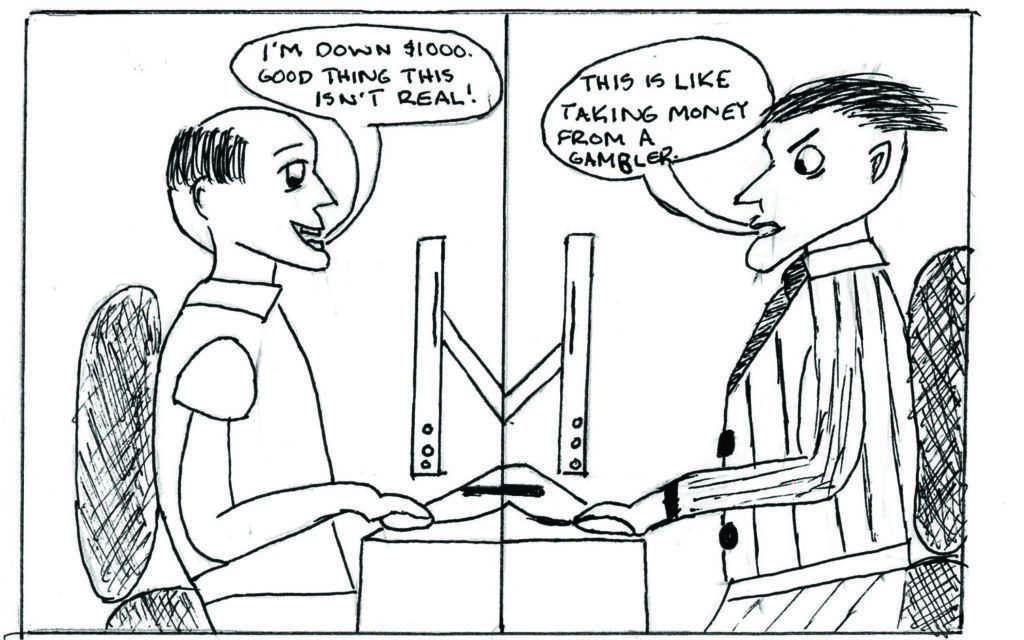Gambling infrastructure is a part of daily life for many people in the State of Michigan, regardless if they know it or not.
Sponsoring radio stations, events and even NMU Athletics, casinos are not an uncommon sight to see while traveling throughout the state. Within the confines of the Upper Peninsula, there are 11 casinos operated by several Native American tribes.
Seeing how readily available gambling is, why can’t I simply log on to my computer and place a bet?
Although numerous pieces of legislation surround gambling, and understanding the laws which affect it are very important in this argument, the legalization of online gambling is a moral issue in which the government has no place to decide.
Native Americans are free to legally operate casinos due to Tribal Sovereignty, as well as other laws and regulations that limit the state of Michigan’s ability to stop them from doing so. However, there are other casinos in Michigan.
In Detroit, for instance, casinos owned by non-Native American entities are allowed to operate freely due to a Detroit City Ordinance Sec. 10.5-1-2.
This defeats the idea that gambling in Michigan can’t be run by private companies, but also solidifies the idea that it’s a club everyone else simply isn’t allowed to join.
According to Michael Wolfe’s USA Today Travel Tips article “Casinos in Detroit,” only three casinos are currently allowed to operate in Detroit. These casinos were chosen by the government and not the free market, which brings up concerns of whether or not they meet consumer demands.
If gambling was legal statewide, then internet gambling would obviously have the lowest barriers of entry. A flood of online casinos might enter the market, which could potentially cater to consumers better than their brick and mortar counterparts.
Online casinos chock the state of Michigan’s ability to keep tabs in the same way that they have been for years with physically located operations.
Basic American capitalism is being suppressed by the state of Michigan due to archaic thinking and outdated morals.
Quoted on his website in regards to his 2013 bill attempting to stop the Michigan State Lottery from allowing online play, Sen. Rick Jones stated, “I was even more concerned when I was told that young people will play, because they like playing games on their phones.”
The Senator implies with a “it’s bad for the kids” argument that people do not have the ability to choose for themselves and must be beholden to the government on matters of their well-being.
The implication that legal adults are not free to do what they want because of the notion that they don’t know what they are doing affecting law is a very slippery precedent to set.
Moreover, it could also be a stepping stone for other overbearing government policies in the future not only relating to to gambling, but across different industries as well.
Although the issue of online gambling has recently taken a spot on the back burner, it is still an issue that could affect many people today.
It affects young entrepreneurs, people that enjoy gambling and most importantly the status-quo of the government’s ability to control the private lives and moral beliefs of its citizens.
The legalization of online gambling has the potential to be a prosperous industry, something the people of Michigan desperately need regardless of its perceived morality.

























